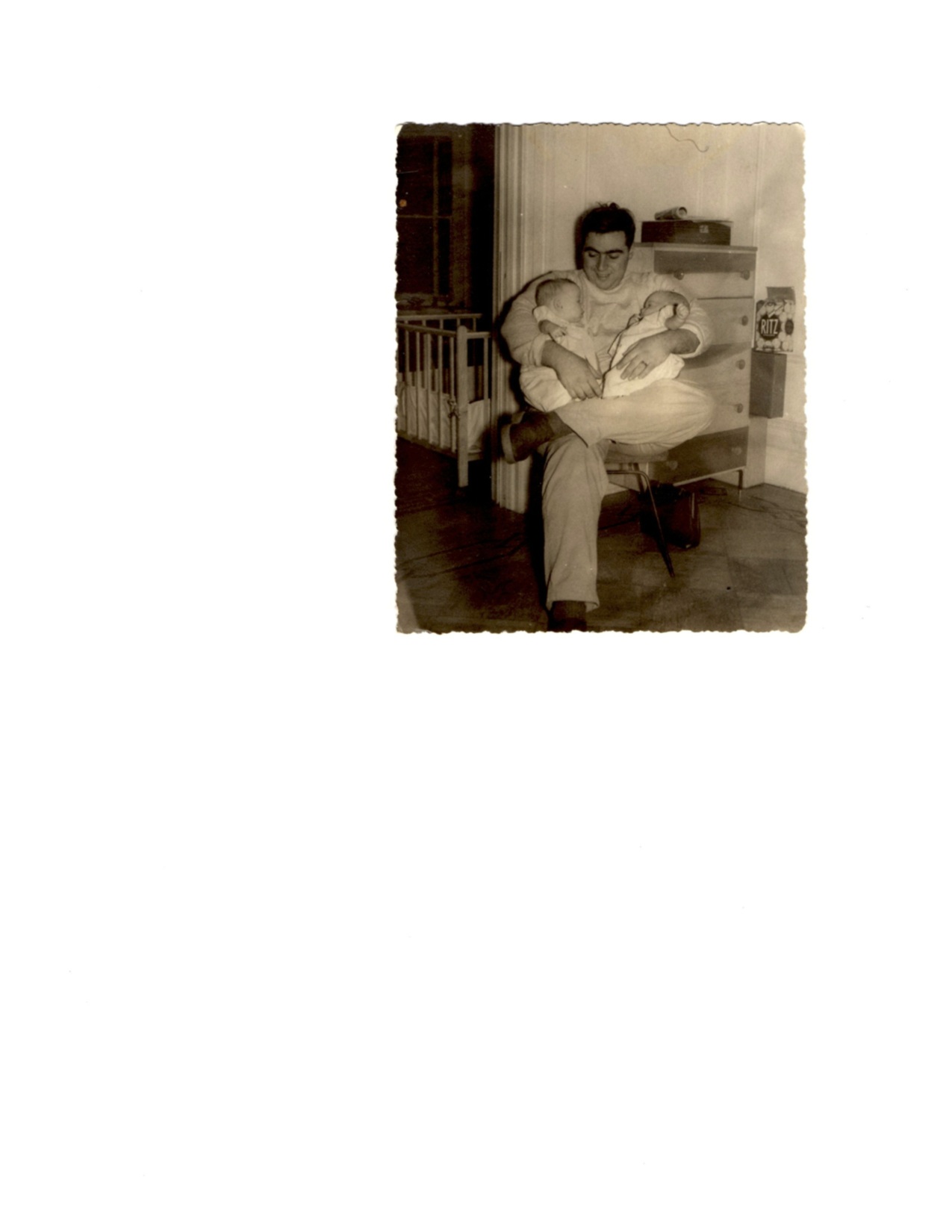When we were little, my parents needed an easy way to tell my identical twin and me apart; so I always wore blue sneakers, she wore red. But somehow, my child mind understood what blue and red really stood for: I was the "normal one", she was disabled (born profoundly deaf, with unspecified brain injury.)
Fifty years later, four of us squeezed into an eye doctor's exam room: the patient - my deaf, brain-injured twin - the technician, the sign language interpreter, and me (the caregiver). The native spanish-speaking technician was asking - through the sign language interpreter - which eye drops my sister used. "Sterile," she said. "Steroids?!!" said the tech. "No," I stepped in: "She's just remembering that the bottle said 'sterile' on it. I'm sure it's just artificial tears." Even with the help of an interpreter, my sister needs me there to untangle misunderstandings like these.
Unpaid caregiving is not just a reality of life. It is an increasingly crucial pillar of support that our economy relies upon to function. This will become increasingly so as the baby boomer generation ages; disability is part of aging.
Yet, the mundane realities of either being disabled or caring for the disabled, seldom enter into our political debates about health care, social security (which - after all - supports the disabled as well as the elderly), jobs, the economy, and social inequality. How is any of this a feminist issue?
By its very nature, feminists are called upon to consider the totality of women's lives. Feminism is about challenging "normativeness" in all its forms.
The website Sociological Images has done an excellent job of highlighting the degree to which "male" is so often considered the normative state of humanity. Feminist law professor Catharine A. MacKinnon argues that the law limits its judgements on discrimination to situations in which men's and women's experiences are the same; therefore, all of women's unique experiences get erased from considerations of equality. But in addressing the challenge of the normative, feminist scholars have had to explore issues of race, class, and sexual orientation, as well as gender.
Early (second wave - i.e., 1960's & 70's) feminism has been accused of failing to look beyond the upper middle-class white women's experiences. Hester Eisenstein's brilliant book Feminism Seduced , points to early feminism's insensitivity to the experiences of poor and minority women. Most poignantly, the emphasis on paid work as the hallmark of liberation, ignored the history of less-than-glamorous jobs held by black women in white households, who might have preferred to stay home with their own children. Melissa Harris-Perry highlighted this dynamic as it relates to our first black First Lady's decision to be a "Mom-in-Chief"
While the movement still struggles with this issue (witness the reactions to Amanda Marcotte's recent Netroots presentation, and the recent hashtag #solidarityisforwhitewomen ), the academic field of women's studies increasingly explores issues of race and class, as they interact with gender. Speaking theoretically, Nancy J. Hirschmann welcomes the consideration of disability as the next step, as it improves the theories and methodologies of feminists. The interaction of disability with gender leads us to examine the lives of disabled women, and women caregivers to the disabled (including the elderly).
A recent article on disability and gender found that disabled women are more disadvantaged financially than disabled men in industrialized countries, including the U.S. Families with disabled members are also disadvantaged by the drain on family income that caregiving represents, and racial disparities further complicate life for disability families. Moreover, disability can be "both a cause and a consequence" of poverty.
Disability also exposes the invisible social compact, including the vast safety net provided by an army of caregivers - most of them women. The Family Caregiver Alliance reports that:
"Within our complex system of long-term care, women's caregiving is essential in providing a backbone of support. In fact, the value of the informal care that women provide ranges from $148 billion to $188 billion annually.
While she was running for Congress, Elizabeth Warren appeared in a viral video , in which she suggested that the wealthy and successful owed a debt of gratitude to the ordinary Americans - and the government they support through their taxes. But Warren's passionate speech left out the role of unpaid (or underpaid) caregiving in that social compact. Women have, of course, historically represented the lion's share of unpaid child care giving. Like Warren, President Obama likes to talk about public infrastructure as a resource for business, rarely mentioning the caregiving that supports those who reach for the sky. Seeing disability as a feminist issue allows us to explore more fully the realities of women's lives, assessing our needs as well as our contributions.
Fifteen years ago, while getting the mail, my visual field began to jump vertically - what I later learned is a classic sign for an inner ear condition. After years of doctors thinking I had multiple sclerosis, I was finally diagnosed with bilateral vestibulopathy (two severely damaged inner ears.) While visiting my twin in California, we boarded a crowded bus taking a bumpy ride. I was a bit panicked that I would fall if I had to stand. Sensing my panic, a kind passenger gave me his seat; my twin remained standing. Suddenly, I was the disabled one. Perhaps the real resonance of disability for feminism, is that we never know if or when we will become disabled. In the words of researcher Nancy Hirschmann:
" Disability , I believe, can help feminism develop intersectionality's truly radical potential: namely, the ways in which 'difference' is just another word for being human. "





